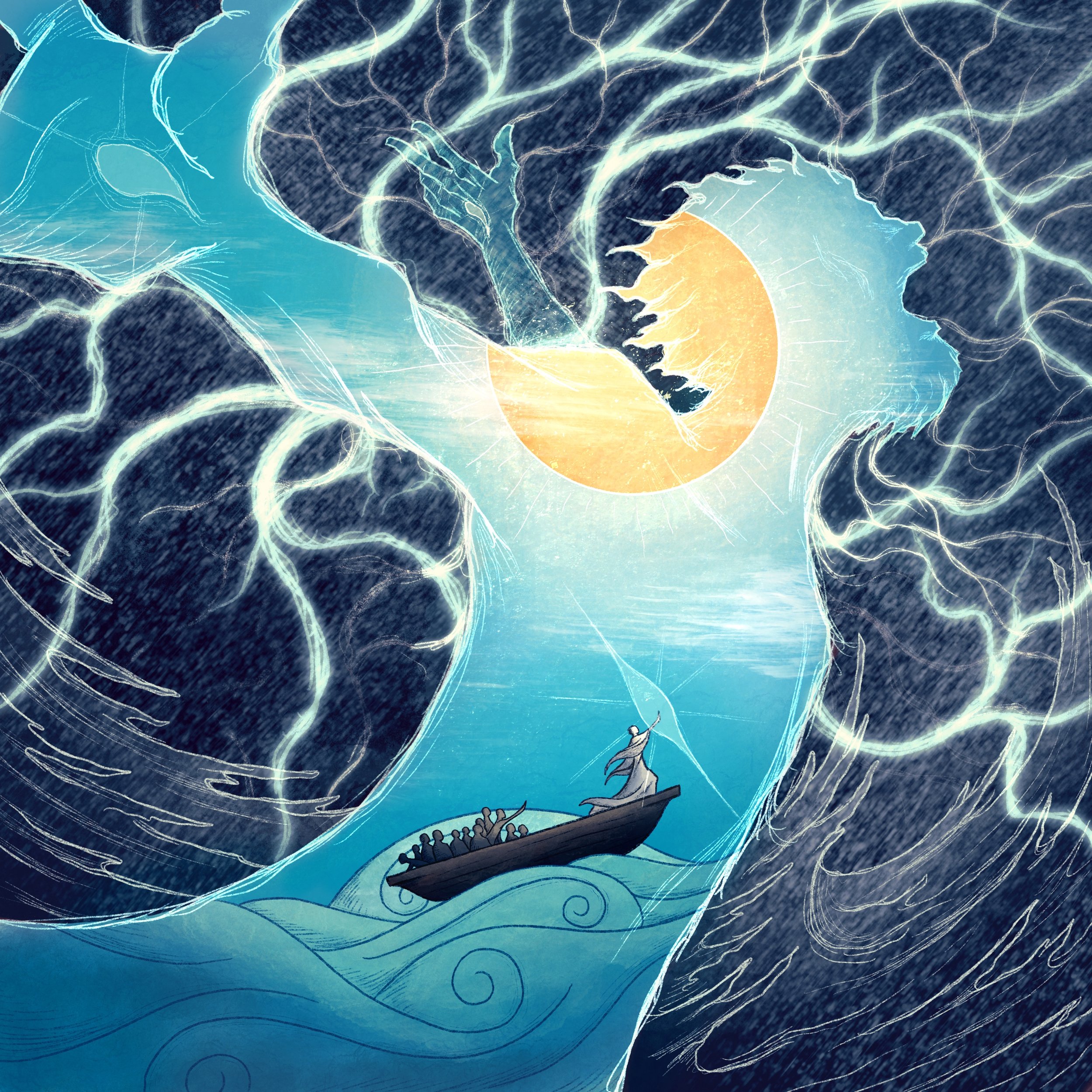Jonah 1:18
“So they picked up Jonah and hurled him into the sea, and the sea ceased from its raging.”
Jonah 1:18
Mark (4:35-41) seems to model his account of Jesus’ stilling the storm of Galilee upon the account here in Jonah 1. One aspect of these paralleled accounts stood out to me this morning and I wanted to take a moment to note it. Namely, the difference between how the storm is stopped.
For Jonah, the storm ceases when he—as one who is disobedient to the Lord—is hurled into the sea. He becomes, as it were, a sacrifice to YHWH, cast into the abyss of His wrath as a propitiation so that His anger—manifest in and as the storm—might be turned away. It is radically different for Jesus. He is walking in perfect obedience to YHWH God, His sleep in the stern is one of child-like rest in the bosom of the Father, and He stills the storm not by a propitiating sacrifice, but by a word of command—Peace! Be still.
But I think we can say more, particularly when we consider Jesus’ word about His death and resurrection as the ‘sign of Jonah’ (Matt. 12:39, 16:4; Luke 11:29).
Jesus Himself repeatedly tells us that His crucifixion ought to be likened to Jonah’s being hurled into the sea and swallowed up by the fish, and that His resurrection is akin to Jonah’s being vomited up by the fish again onto dry land. So, we have dominical warrant to read Jonah’s plummet into the sea as an image of Jesus’ death on the cross. Now, the sea into which Jonah is thrown is a natural sea, but the ‘sea’ into which Christ is thrown on the cross is, as it were, a cosmic sea; it is the sea of Humanity’s curse, the sea of Creation’s groaning, the sea of sorrow, suffering, death, and damnation—the sea of God’s wrath. In that sea, He is swallowed by the Fish of Condemned Death, the Fish of Sheol and Hades, and He is taken to the roots of damnation…
But then, from that place, He is raised up again by God (see Jonah 2 as Christ’s own prayer from the grave) and so overthrows Death and Hades, overturns the curse, reconciles the groaning cosmos, and swallows up wrath, rising into new and unassailable life. That is the reality of which Jonah is the sign.
Now, I say all this because, when Jesus stills the storm with a word, is the point truly that He did not have to be thrown into the sea in order to calm the waves? Rather, I would suggest that we are to recognize that He stills these waves with a word because He has already—from all eternity—stilled every wave through His descent into and ascent from that singular storm of divine wrath against creaturely sin. It is this work, this work that is eternally present since carried out in the eternal Spirit (Heb. 9:14) upon which the Lord draws when He speaks the word of command to silence the roaring of the sea—a roaring under whose curse He has already suffered, died, and risen in victory.
The authority and power of ‘Peace, be still’ is a temporal application of the from-the-foundations-of-the-world death and resurrection of this same Jesus Christ. And so….Jesus too stills the storm by being hurled into it, devoured by the fish, and rising again in victorious embodiment of God’s faithfulness….However, unlike Jonah, His descent and ascent is cosmic in scope and eternal in its presence.
